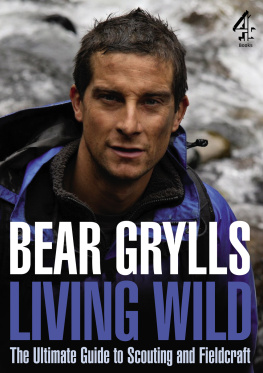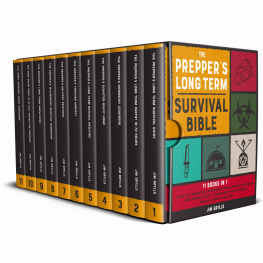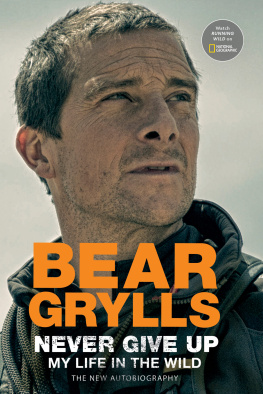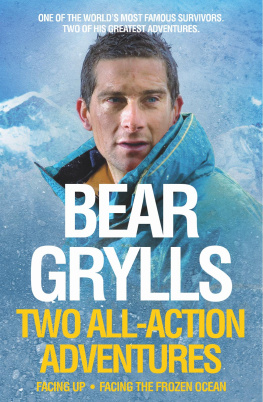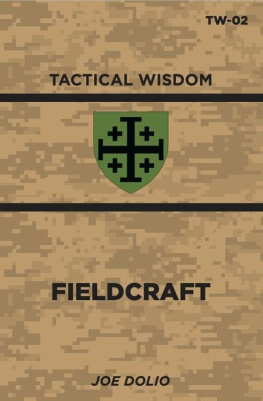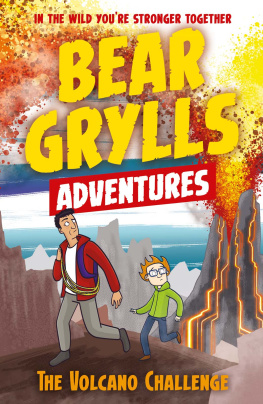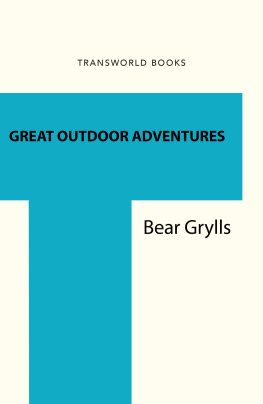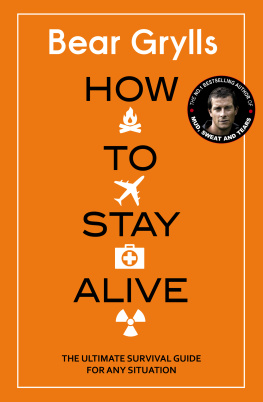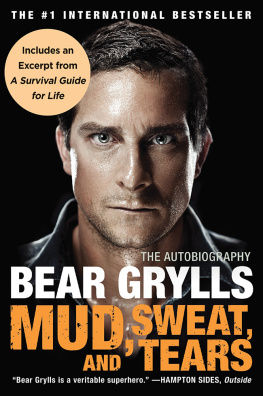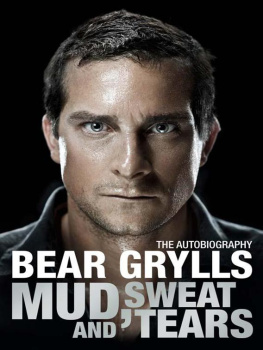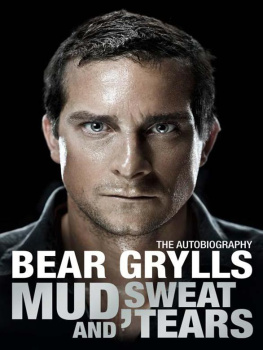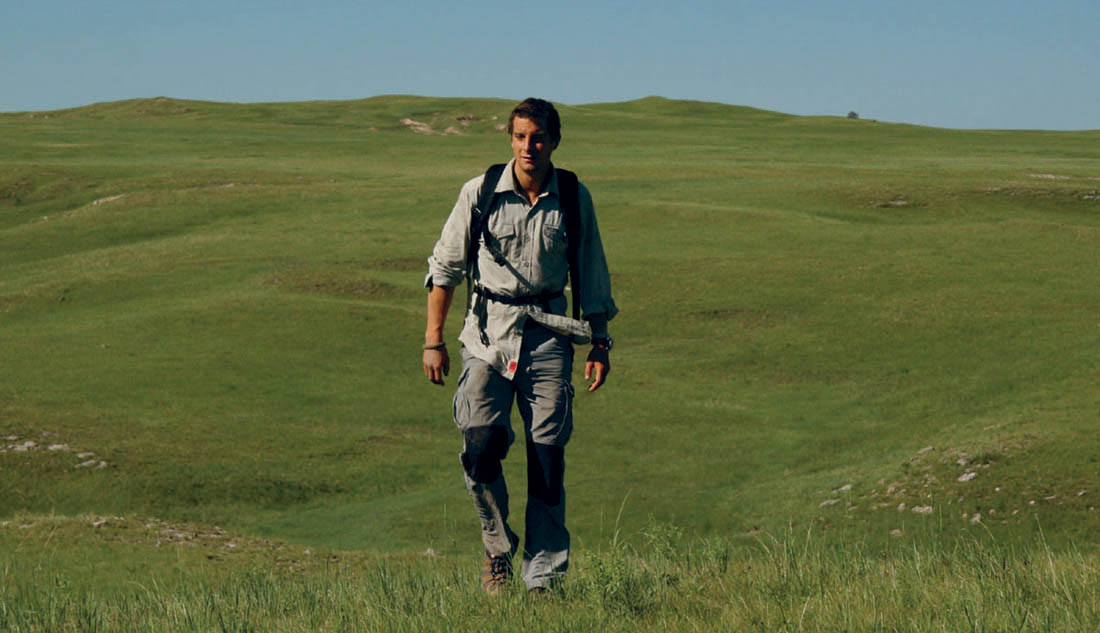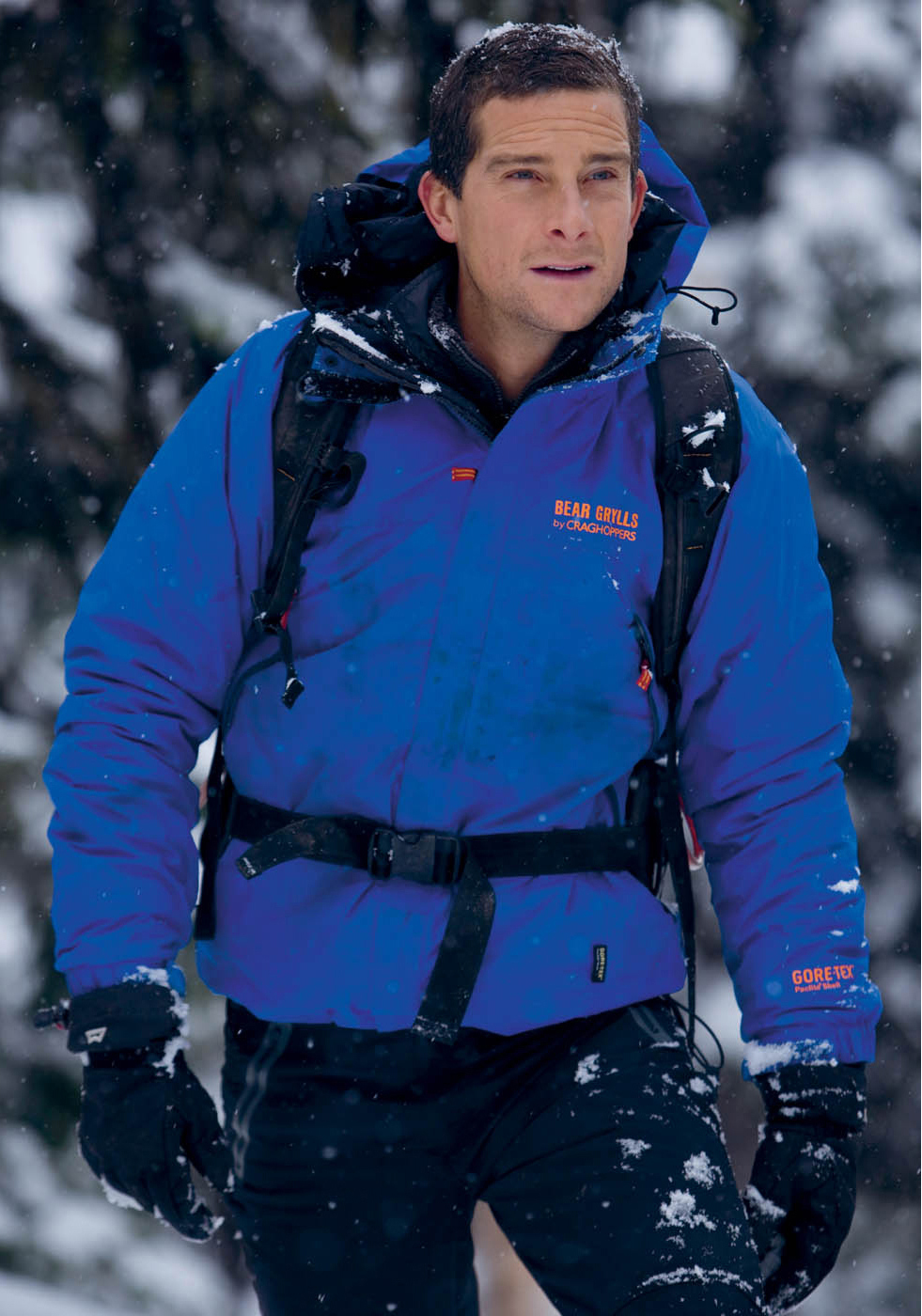Contents
ABOUT THE BOOK
In this essential guide to living wild, Bear Grylls reveals the secrets of his years of fieldcraft experience.
- Hidden Dangers pitfalls the seasoned field professional would know to avoid.
- Bears Secret Scouting Tips lessons learnt the hard way!
- Training Exercises ways to get your skills up to scratch before going into the field.
- Improvising in the Field what to do when you dont have the right tools with you.
- Real-life Campfire Stories tales from Special Forces soldiers and past and present explorers.
Its all here, from mastering the art of making the perfect campfire and constructing the best camp, to navigating safely through all terrains in all weathers with or without a map... The only other thing youll need is this book!
Never say die till youre dead!
Lord Robert Baden-Powell, K.C.B.
We are the Pilgrims, master; we shall go
Always a little further: it may be
Beyond that last blue mountain barred with snow,
Across that angry or that glimmering sea
From The Golden Journey to Samarkand by J. E. Flecker, inscribed on the memorial clock tower at SAS headquarters, Hereford
This book is dedicated to every one of the 28 million Scouts worldwide. You are part of a global force for good and one of the largest, most positive youth movements of all time. That is good reason to be proud. But Scouting pride requires us then to walk humbly and to give of ourselves. Remember that your strength lies in the skills you are learning, the camaraderie you share and the adventures you are living.
As UK Chief Scout, I am continually filled with admiration for the great spirit that I see in Scouts from all over the world. Long may that spirit thrive.
Bear Grylls, UK Chief Scout
INTRODUCTION
More than a century ago, a Lieutenant General in the British Army organized a week-long camp for twenty boys on Brownsea Island in the south of England. His name was Robert Baden-Powell. He called his recruits scouts, after the military scouts who, in his own words, were chosen for [their] cleverness and pluck to go out in front of an army in war to find out where the enemy are. The skills he taught his scouts were those he himself had mastered during a spectacular military career; skills such as observation, woodcraft, life-saving and shelter building.
Baden-Powell could never have imagined that his Scouting movement would be bigger today than it ever has been. Or maybe he could. But then, cleverness and pluck never go out of fashion, and they are really what this book is all about. Indeed, cleverness and pluck are the beating heart of a Scout.
In the hundred years since Baden-Powell started the Scouting movement, many things have changed. Cities have grown, technology has moved on. But the natural world remains timeless. The stars we use to navigate by are still in the same place; the sun still rises in the east and sets in the west; animals still cast the same tracks and fire still burns just as bright. Our duty as Scouts is to nurture this natural world and every living being in it, to understand the wild, to harness it and to have the courage to follow our God-given spirit of adventure wherever it leads.
I have often written in books about survival or the great outdoors with much reference to previous expeditions or adventures that I have been lucky enough to be involved with. But I have rarely written about the skills I learned during my time with 21 SAS. Much of the information contained in this book comes from these skills that I continue to use to this day. The reason for this is simple. There is a very strong link between the disciplines crucial to the world of Special Forces and those used in the world of Scouting. What I have endeavoured to do in this manual is to highlight those links and adapt many of the practices that make good Special Operations soldiers to the skills required to be an elite pathfinding Scout.
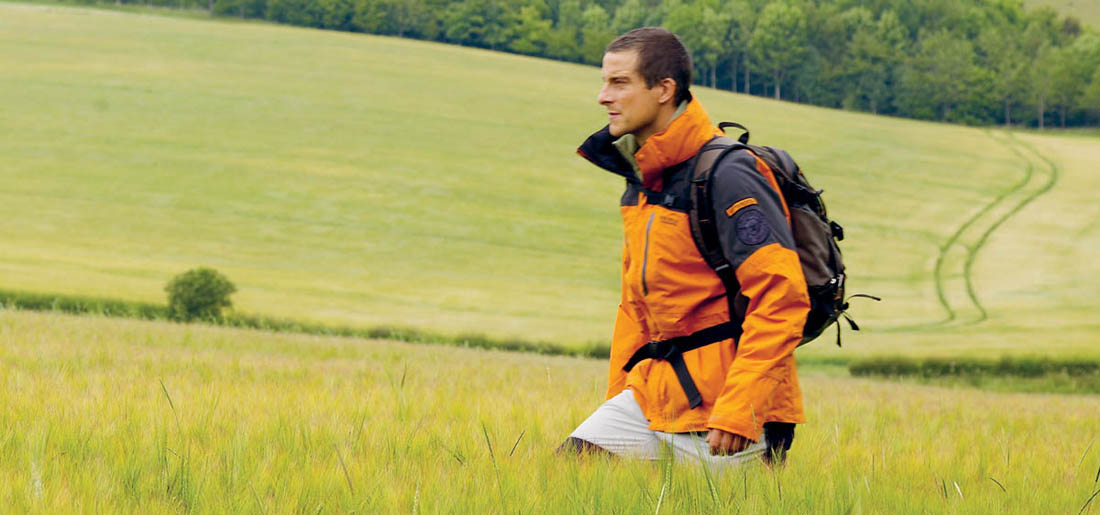
The Scouting motto is Be Prepared, and life, in essence, is all about being prepared. Being prepared and trained for adventure, trained to survive, trained to operate in small teams, being prepared to understand nature and how to live wild, and ultimately being prepared for both life and the life-after. It is through our faith that we find peace, but that same faith can also give us great boldness to reach out that little bit further than maybe we are comfortable. Everything worthwhile in life comes from reaching beyond that point of comfort; daring to risk it all; following our dreams despite the cost; loving despite the pain; hoping despite the doubts; and living boldly despite the fear. If I have learned anything it is that together we are stronger. The great key to Scouting and living wild is to embrace that: to laugh, to strive, to dream and to explore, and to take those you love along with you for the ride.
So get out there, guys! Life is an adventure that is best lived boldly.
God bless, and go for it.
Lt Cdr (Hon) Bear Grylls RN
UK Chief Scout
Adventure only happens to those incompetent of planning an expedition.
Roald Amundsen, polar explorer
PROTECTION FROM THE WIND, RAIN, COLD, HEAT AND SUN THE KILLER COMBINATIONS
Dont underestimate the elements. You dont have to be exposed to the heat of the Sahara or the biting chill of Antarctica: the weather can kill you wherever you are. Respect it, understand it: then you have a chance.
To understand how the killer combinations of wind, rain, cold, heat and sun can affect you, you need to understand how your body deals with temperature. Human beings are homotherms. This means that they keep their body temperature at a constant level. Various mechanisms have evolved to let us do this. For example, when we get hot, we sweat our bodys way of cooling us down; when we get cold, we shiver a reflex action that makes our muscles move and so create warmth by expending energy.
Regulating our temperature like this is essential for survival. Our bodies consist of a hot inner core (home to our vital organs such as the brain, heart, lungs, liver and kidneys), surrounded by a protective cooler shell (our muscles, skin and fat). The hot core is normally around 36.8C. Even in very extreme climates, that core temperature shouldnt vary by more than two degrees in either direction. If it does, youre in trouble. If your core temperature goes higher than 42.7C or lower than 28.8C, you die either of hyperthermia or hypothermia.

